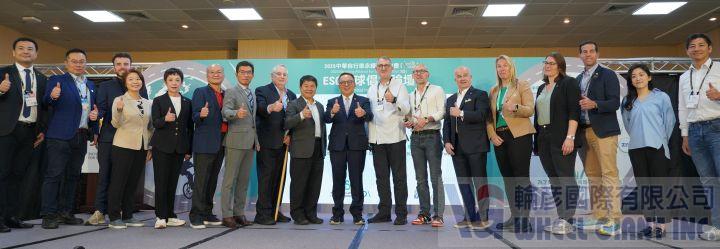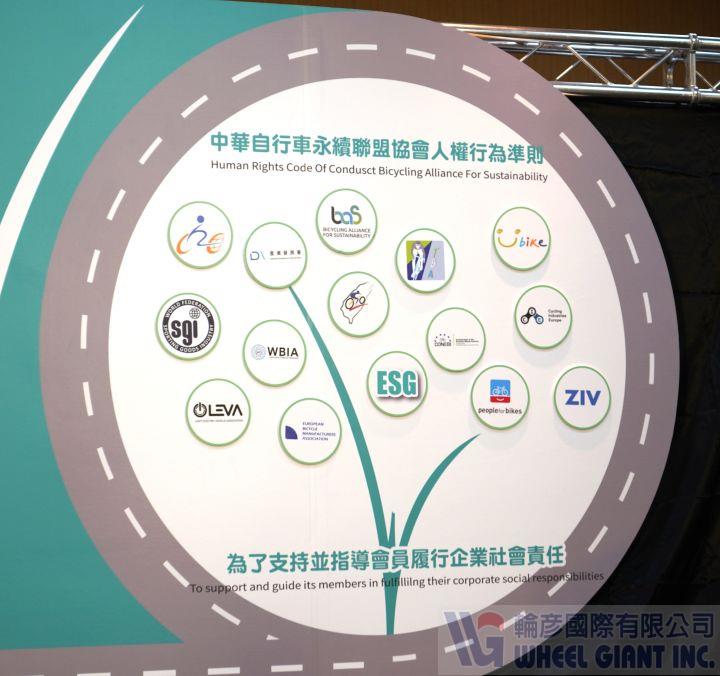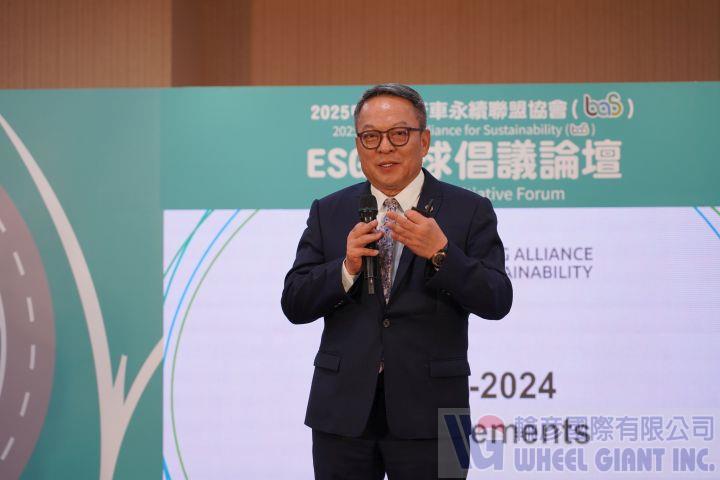The Bicycling Alliance for Sustainability (BAS) hosted the 2025 BAS ESG Global Initiative Forum on the morning of the second day of the Taipei Cycle Show, bringing together global bicycle industry experts and stakeholders.
Notable attendees included WBIA President Bayram Akgul, WFSGI Head of International Sports & Cycling Michelle Smyth, CONEBI President Massimo Panzeri, CIE President Tony Grimaldi, EBMA Trade Policy Officer Remi Virion, LEVA USA Representative Jonathan Weinert, PeopleForBikes Representative ED Benjamin, ZIV Chief Policy and Advocacy Officer Anke Schäffner, and the initiator of World Bicycle Day, Professor Leszek Sibilski. Together, they explored the crucial role of the bicycle industry in driving sustainable development.
Additionally, Chin-Ching Liu, Minister of Taiwan’s National Development Council, and Tseng-Ming Hsu from the Industrial Development Administration, Ministry of Economic Affairs, attended the forum in person to show their support. This event marked a significant milestone for BAS in promoting ESG initiatives, while also serving as a platform to advocate internationally for the importance of cycling carbon credits.
Focus on Human Rights and Conduct Codes
This year’s forum centered on human rights and conduct codes, featuring Yung-Chieh Chao, an accountant from PwC Taiwan, who presented the BAS Human Rights Conduct Codes Implementation Report and outlined the next phase of execution. The forum also highlighted BAS’s key sustainability achievements in 2024, including:
-
87% of members completing organizational greenhouse gas inventories,
-
48% of members conducting product carbon footprint calculations,
-
Some members initiating the development of Product Category Rules (PCRs) for bicycle products.
Advancing Cycling Carbon Credits
Professor Leszek Sibilski, initiator of World Bicycle Day, was specially invited to introduce the concept of cycling carbon credits for BAS. Quoting Arthur Rolle, Chair of the CDM Executive Board, he emphasized: “Bicycles are an excellent mode of transportation and play a crucial role in reducing carbon emissions that contribute to climate change.”
This underscores the growing importance of cycling carbon credits, with Sibilski expressing hope that Taiwan will take the lead in launching this pivotal initiative.
Industry Innovations and ESG Best Practices
Building on the momentum of last year’s forum, which generated significant industry impact, LEVA USA registered for this year’s event to share innovative sustainability initiatives adopted by U.S. bicycle manufacturers and retailers, including Trek, QBP, and Feedback Sports.
During the forum, BAS member companies enthusiastically showcased their ESG achievements:
-
Glory Wheel shared its aluminum scrap recycling and reuse program, which reduces material-related carbon emissions. The compressed aluminum waste optimizes transportation efficiency, cutting carbon emissions from logistics and contributing to a circular economy.
-
Token set a groundbreaking precedent in the bicycle industry by implementing a 2.5-day weekend policy, leading to a more stable workforce, increased employee-driven innovation, enhanced company efficiency, and reduced costs—ultimately improving competitive pricing.
-
Kenda upgraded its equipment and energy systems, while incorporating sustainable materials such as recycled rubber, reclaimed carbon black, and soybean oil in its products. The company has also implemented ISO 31000 risk management practices and established an internal Sustainability Development Committee to drive various sustainability initiatives.
A Shared Vision for a Sustainable Future
BAS Chairman Young Liu emphasized that this forum not only strengthens industry consensus domestically and internationally but also fosters cross-border collaborations to create a low-carbon and sustainable future.
He expressed confidence that, through the joint efforts of BAS and industry stakeholders, bicycles will become a benchmark for ESG-driven traditional industries, driving positive and lasting impacts.











